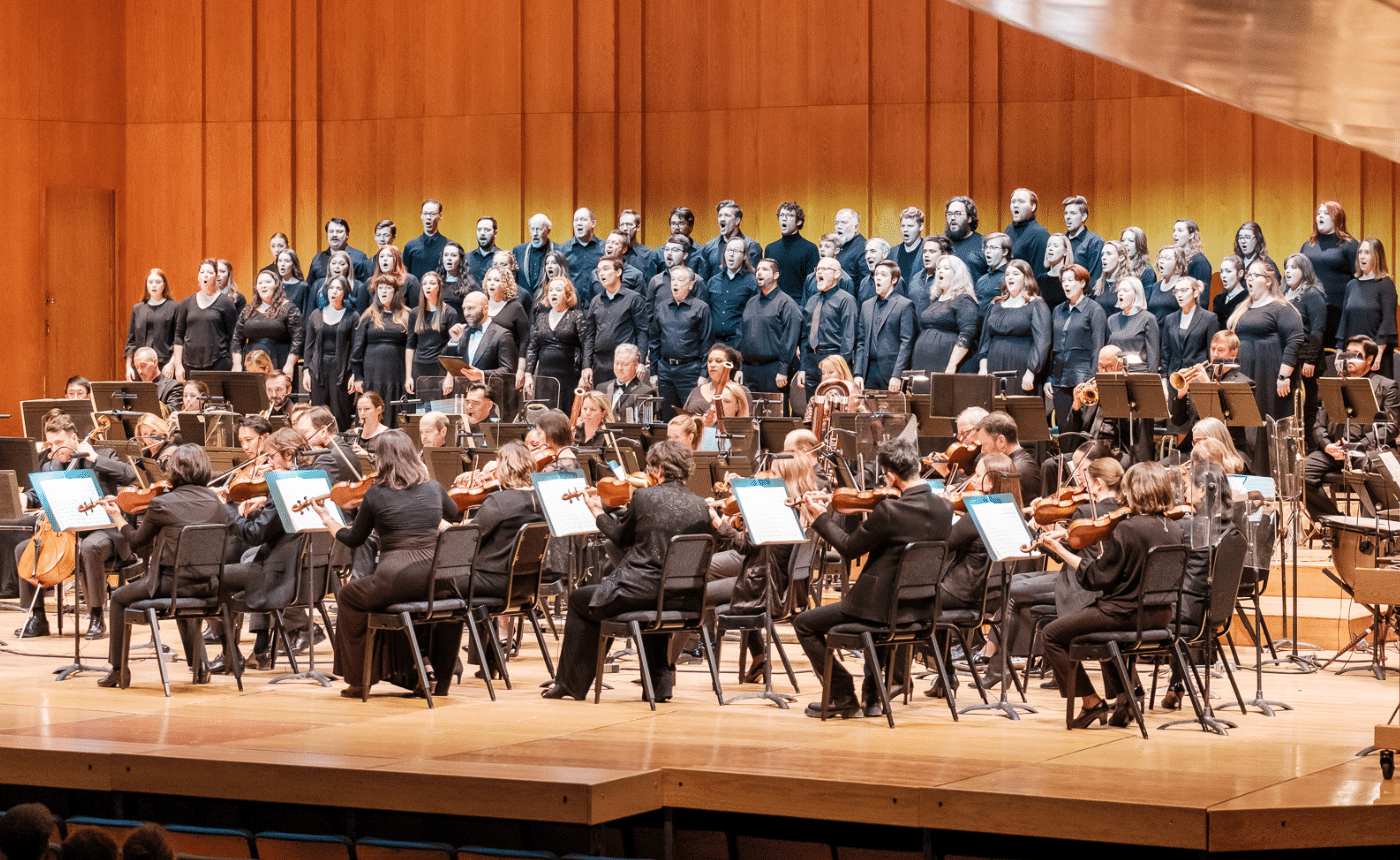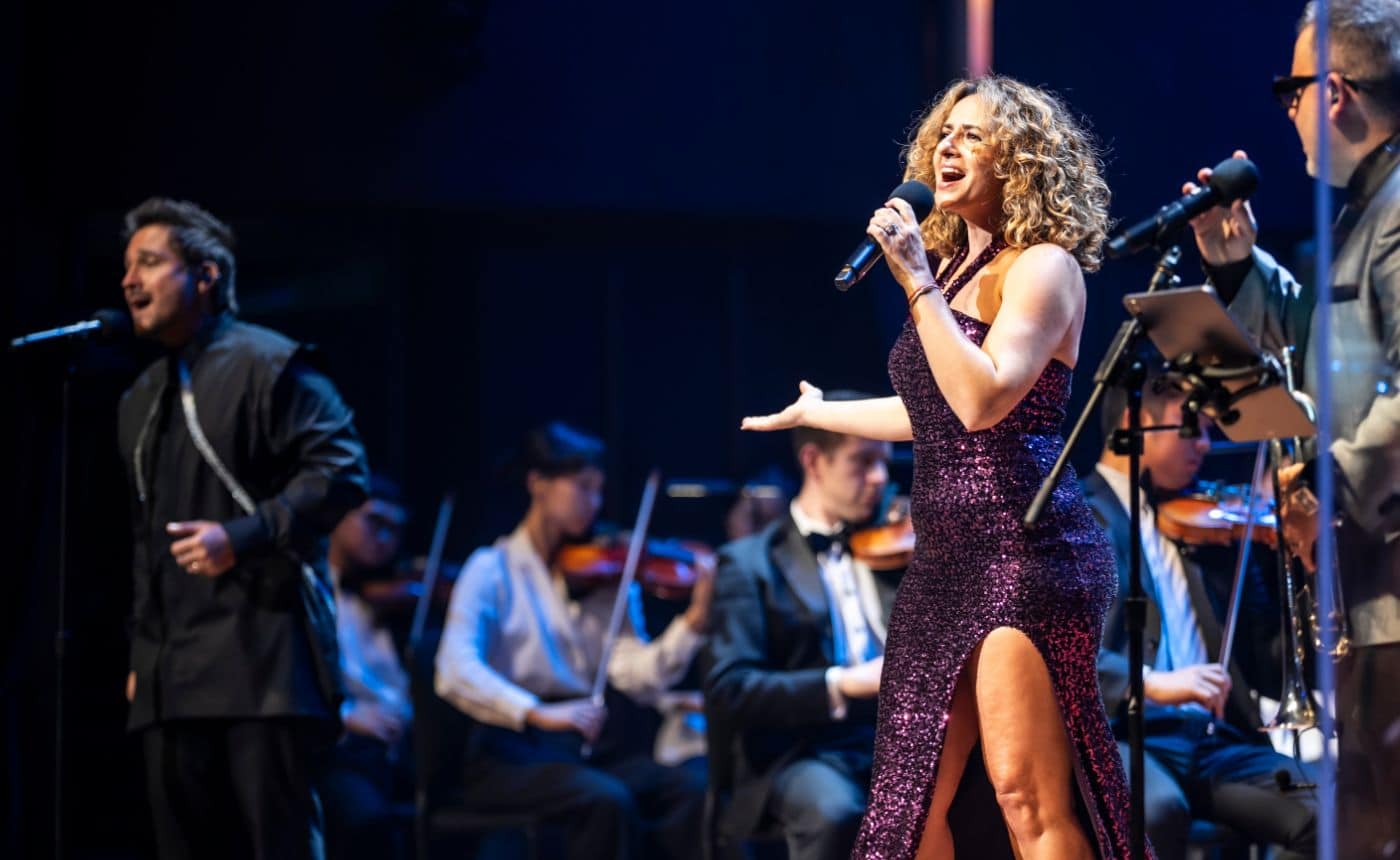Britten An American Overture
by Jeff Counts
Instrumentation: 3 flutes (3rd doubles piccolo), 3 oboes, 3 clarinets (3rd doubles bass clarinet), 3 bassoons, 4 horns, 3 trumpets, 3 trombones, tuba, timpani, triangle, snare drum, cymbals, suspended cymbal, bass drum, chimes, tam-tam, tenor drum, harp, strings.
Duration: 10 minutes.
THE COMPOSER – BENJAMIN BRITTEN (1913-1976) – Like many fellow European artists, Britten left for North America just ahead of the coming World War in 1939. Aside from safety reasons, he was anxious to take a break from England’s often unfriendly opinions. Britten would spend three years on our continent and his work during that time reflected both the stress of events back home and an honest attempt to capture the cultural uniqueness of his hosts.
THE HISTORY – Britten received a commission for a short orchestral work in 1941 from Maestro Artur Rodzinski and the Cleveland Orchestra. For reasons that are unclear today, the piece was never performed and Britten left the manuscript in America when he returned to England in 1942. The original title of the work was An Occasional Overture and when it was unearthed in the 1970s, Britten claimed at first to have no memory of it. The lack of memory soon turned to outright denial until Britten saw the score for himself and was forced to admit that the handwriting was indeed his. The rediscovery necessitated a change of title to differentiate the 1941 piece from another Occasional Overture published later in 1946. It’s hard to say why Britten tried to disavow his stately, Copland-influenced American Overture (the new name). He may have found it lacking or possibly emblematic of the “composer’s block” that plagued him for a time starting in 1942. His own letters from just after he had acknowledged ownership of the music provide some justification for the latter theory. He stated that his “recollection of that time was of complete incapacity to work; my only achievements being a few Folk-song arrangements and some realizations of Henry Purcell.” That mention of Purcell is tantalizing proof that the block did not last for very long.
THE WORLD – As a war year, 1941 was known for the Babi Yar massacre and the attack on Pearl Harbor. Other events in 1941 included Joe DiMaggio’s 56-game hitting streak, the premiere of Citizen Kane and passing of author James Joyce.
THE CONNECTION – These concerts represent the Utah Symphony premiere of An American Overture.











